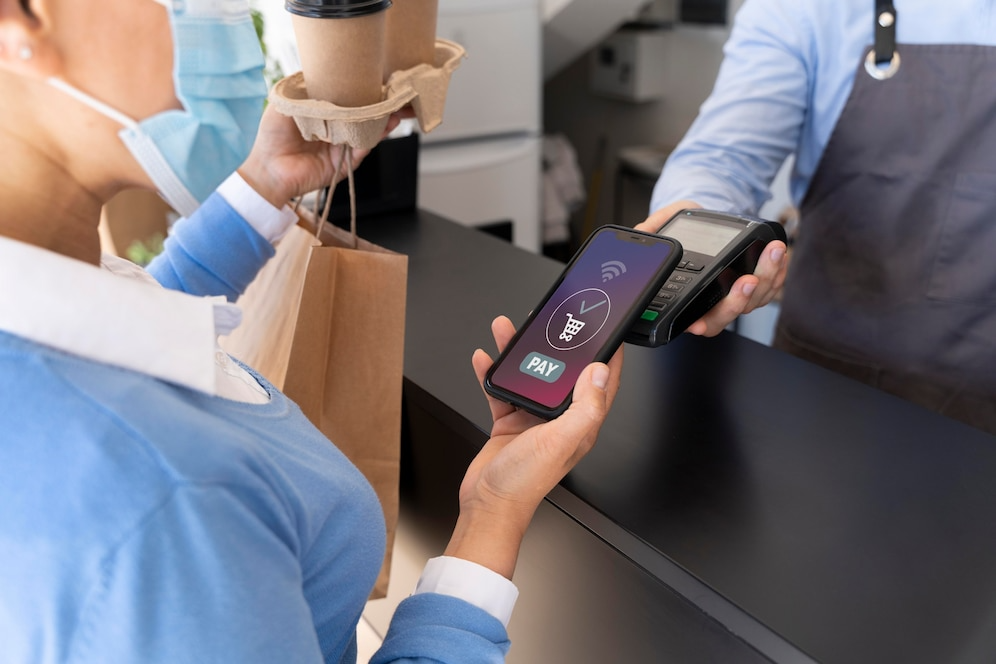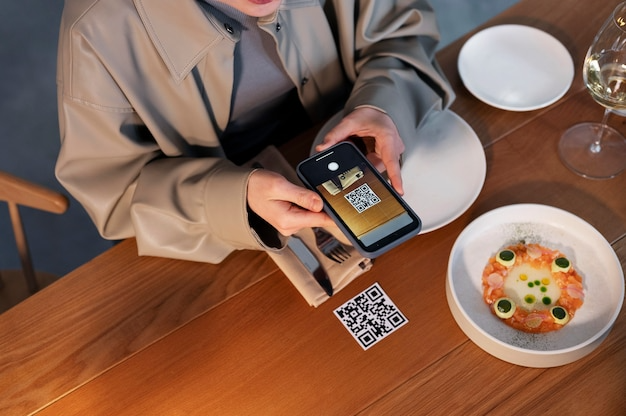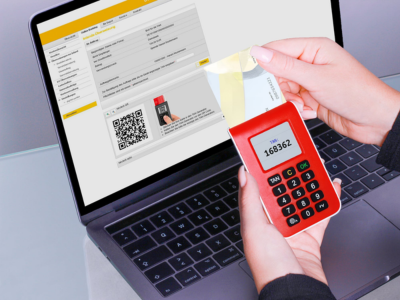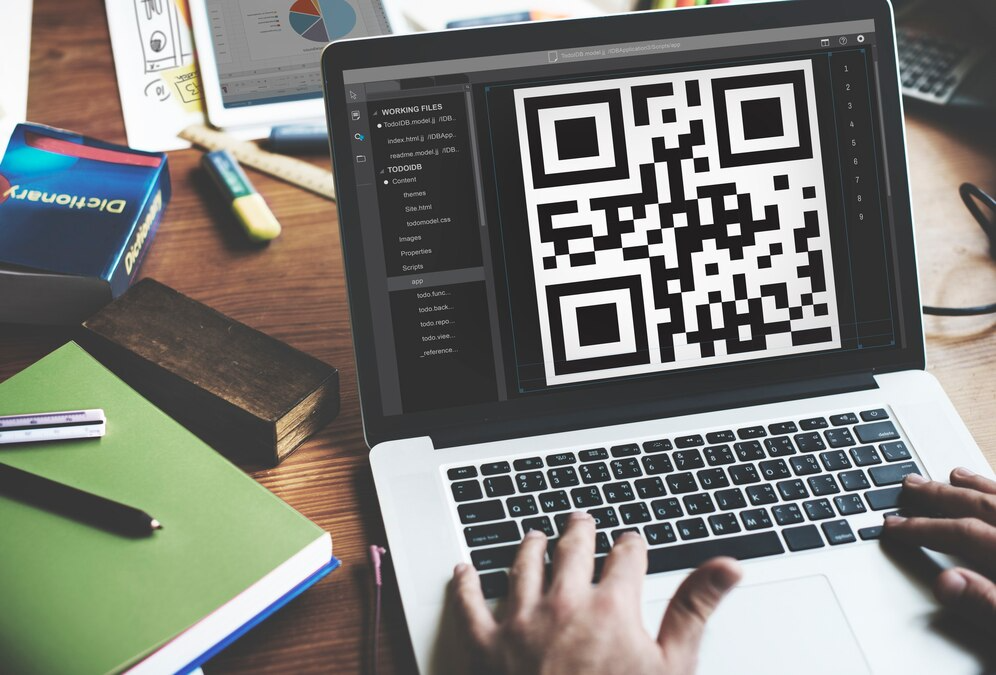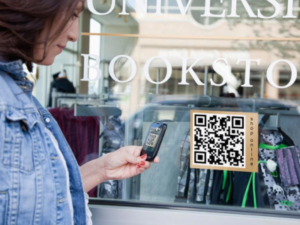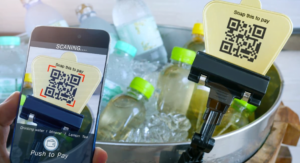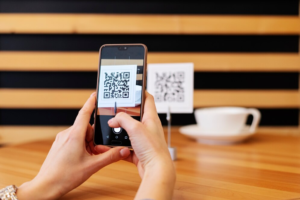In the rapidly evolving landscape of retail, businesses are constantly looking for innovative ways to engage customers and streamline their operations. One technology that has gained significant popularity in recent years is Quick Response (QR) codes. These square-shaped barcodes, when scanned by a smartphone or a QR code reader, can unlock a world of possibilities for both retailers and consumers. In this article, we will explore the benefits of using QR codes in retail and how they can enhance the overall shopping experience.
What are QR codes?
QR codes are two-dimensional barcodes that store information in a machine-readable format. They were first developed in Japan in the 1990s and have since become widely adopted across various industries. QR codes can contain a range of data, such as website URLs, contact information, product details, and more. Their unique design allows them to store significantly more information compared to traditional barcodes.
How do QR codes work?
When a QR code is scanned using a smartphone’s camera or a dedicated QR code reader app, the encoded information is quickly deciphered. This information can trigger a specific action on the device, such as opening a website, displaying product details, or initiating a payment transaction. QR codes are versatile and can be placed on various surfaces, including product packaging, store displays, marketing materials, and even digital platforms.
Benefits of using QR codes in retail
Enhanced customer experience
One of the primary benefits of using QR codes in retail is the enhanced customer experience they offer. By scanning a QR code, customers can access detailed product information, customer reviews, and additional multimedia content. This enables them to make informed purchasing decisions, leading to increased customer satisfaction. Moreover, QR codes can provide personalized offers, discounts, and loyalty rewards, creating a sense of exclusivity for customers.

Improved inventory management
QR codes play a vital role in improving inventory management processes for retailers. Each product can be assigned a unique QR code that contains essential details, such as SKU numbers, stock levels, and product locations. By scanning these codes, store employees can easily track inventory movements, conduct stock counts, and identify any discrepancies. This streamlines the inventory management process, reduces errors, and ensures efficient stock replenishment.
Efficient payment options
QR codes have revolutionized the payment landscape in retail. With the rise of mobile payment platforms, customers can now make quick and secure payments by scanning QR codes at checkout. This eliminates the need for physical cash or card transactions, providing a seamless and contactless payment experience. Retailers can integrate QR code payment solutions into their point-of-sale systems, simplifying the payment process for both customers and staff.
Tracking marketing campaigns
QR codes serve as a valuable tool for tracking the effectiveness of marketing campaigns. By incorporating unique QR codes in advertisements, promotional materials, or social media posts, retailers can monitor the engagement and conversion rates of their campaigns. Detailed analytics can provide insights into customer behavior, allowing businesses to refine their marketing strategies and optimize their return on investment.
Increased brand engagement
QR codes offer retailers an opportunity to enhance brand engagement and create interactive experiences. By linking QR codes to engaging content, such as videos, games, or augmented reality experiences, retailers can captivate their audience and strengthen brand loyalty. For instance, a clothing retailer can create virtual fitting rooms or provide styling tips through QR codes, allowing customers to visualize themselves wearing the products.
Examples of QR code usage in retail
- Product information and reviews: QR codes placed on product labels or store shelves can provide customers with detailed information and reviews, helping them make informed purchase decisions.
- Mobile payments: Retailers can integrate QR codes into their mobile payment solutions, allowing customers to make quick and secure transactions using their smartphones.
- Loyalty programs: QR codes can be used to reward loyal customers with exclusive discounts, offers, or loyalty points.
- Interactive displays: QR codes placed near displays or mannequins can provide customers with additional product information, styling tips, or access to exclusive content.
- Digital catalogs: QR codes in print catalogs or digital advertisements can direct customers to online catalogs or e-commerce platforms, simplifying the purchasing process.
QR code best practices
- Ensure QR codes are large and clearly visible for easy scanning.
- Test QR codes across multiple devices and platforms to ensure compatibility.
- Provide clear instructions on how to scan QR codes for customers who may be unfamiliar with the technology.
- Regularly update and refresh the content linked to QR codes to provide a dynamic and engaging experience.
- Consider the placement of QR codes strategically to maximize visibility and accessibility.
Security considerations
While QR codes offer numerous benefits, it’s essential to consider security measures to protect customers and businesses. Retailers should:
- Regularly monitor and authenticate QR codes to prevent unauthorized tampering.
- Ensure that QR codes do not lead to malicious websites or pose cybersecurity risks.
- Educate customers about potential risks associated with scanning unknown or suspicious QR codes.
FAQs
Can QR codes be scanned by any smartphone?
Yes, QR codes can be scanned by most smartphones with a built-in camera. However, older devices may require a dedicated QR code reader app.
Are QR codes secure?
QR codes themselves are not inherently secure. It’s crucial to ensure that the linked content is safe and regularly monitor QR codes for any potential tampering.
Do QR codes require an internet connection to work?
Yes, QR codes typically require an internet connection to access the linked content. However, some QR codes can store limited information offline.
Can QR codes be customized with branding elements?
Yes, QR codes can be customized with branding elements, such as logos or colors, to align with a retailer’s brand identity.
Are there any limitations to the amount of data a QR code can store?
QR codes have the capacity to store a significant amount of data, but excessively large amounts may result in decreased scanning reliability. It’s best to keep the data within a reasonable limit for optimal performance.
Conclusion
QR codes have transformed the retail industry by enhancing customer experiences, improving inventory management, providing efficient payment options, tracking marketing campaigns, and increasing brand engagement. With their versatility and ease of use, QR codes have become an indispensable tool for retailers looking to stay ahead in a competitive market. By incorporating QR codes strategically, retailers can unlock a range of benefits and create memorable interactions with their customers.

